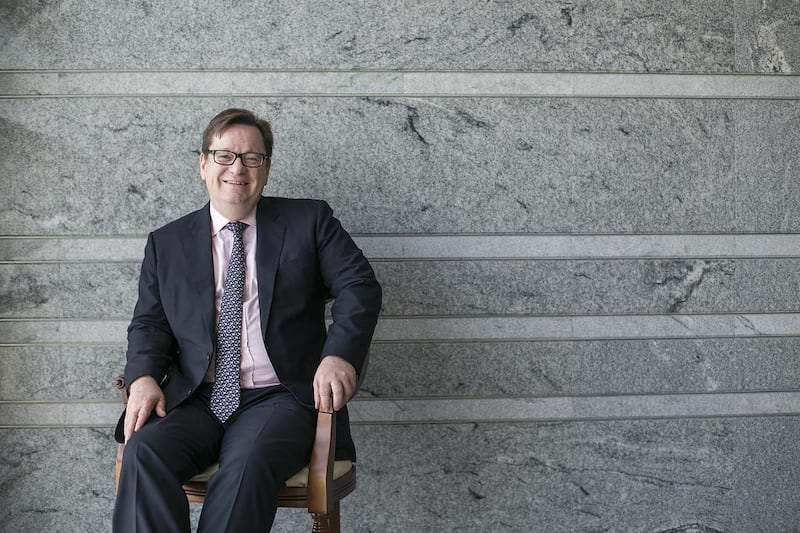UAE banks may face a tough slog next year as loan growth slows amid lower oil prices, according to Alex Thursby, the chief executive of National Bank of Abu Dhabi.
As a result of the slowing rate of economic growth, Mr Thursby said he expected UAE loan growth to rise by about 5 per cent, nearly half the expansion rate over the past few years.
“I think financial services over the next 18 months will be a much tougher business than it has been in the previous 18 months, and the reason I say that is people have generated growth through growth of assets,” he said in an exclusive interview. “That’s slowing down, margin compression is continuing and markets are growing less.”
__________
More from Alex Thursby
■ NBAD looks to emerging markets. Read here
■ NBAD bangs the drum for SMEs. Read here
__________
Many banks, including NBAD, have yet to report third-quarter earnings but there are some early signs that the wave of buoyant earnings of the past couple of years is ebbing. Sharjah-based United Arab Bank has been the biggest casualty of the season with a loss of more than Dh200 million after some corporate customers found it more difficult to pay back debt.
Before the crash in the price of oil, UAE banks were on a roll. They flourished after emerging from the 2009 debt crisis as government spending on infrastructure and low interest rates propelled the economy at a rate of more than 4 per cent over the past two years.
However, the oil slump, during which the price of crude has shed half of its value, has put a brake on the UAE’s economic growth, with the IMF forecasting 3.2 per cent growth this year. The UAE is the sixth-largest producer of oil in the world and uses revenue from crude sales to fund more than 60 per cent of the federal budget.
The UAE Central Bank said yesterday that loan growth slowed to an annual 7 per cent in September from 8.6 per cent in August, the slowest rate of growth since February last year.
Despite the slowdown, Mr Thursby said there had been growth in businesses from outside the UAE. That has helped to bolster deposits as big corporations, financial institutions and sovereign wealth funds, which he did not name, fill the bank’s coffers.
Mr Thursby said, however, that there were still many segments of his bank’s business, such as loans to individual customers, trade finance and bond sales, that are showing healthy growth, even as traditional lending hits a road bump.
But the biggest silver lining for the Australian-British executive is that the excesses before the financial crash of 2008 have largely been remedied by measures such as caps on the amounts that can be borrowed to fund home purchases, as well as improved capitalisation at banks. Annualised loan growth in the past couple of years has ranged between 8 and 10 per cent, a far cry from the 41 per cent of 2008.
And, to boot, the economy is becoming less dependent on oil.
“The debt burden is not nearly as much. It’s simple,” Mr Thursby said. “It’s fair to say you are running into a slowing economy. Let’s not divert. The longer oil rolls on at $50 a barrel or less than, then the economy may slow a little bit further, but this is not the end of the world. You have an economy in the UAE that’s 70 per cent dependent on non-oil.”
mkassem@thenational.ae
Follow The National's Business section on Twitter





